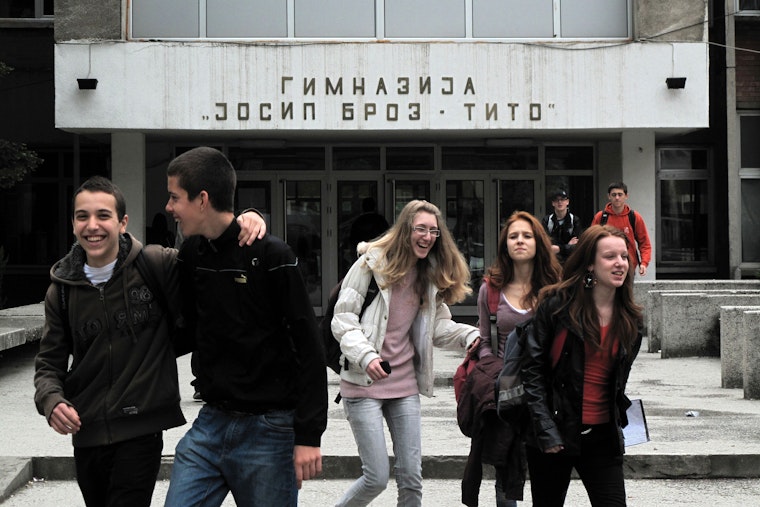How Macedonia’s Bureaucracy Is Failing Young People
By Katerina Gogova

Two years ago in Skopje, Macedonia, a pregnant 16-year-old girl sought treatment for problematic opioid drug use but kept hitting a brick wall. Every program she contacted for help gave her the same answers: they didn’t know how to administer the treatment she needed, they were not competent to treat minors, and so on.
Meanwhile, the girl also couldn’t find anyone who could give her the permission legally required for a minor to be hospitalized; her mother had legal custody and could not be found. The girl would go on to have a miscarriage. She is now 18 years old, a problematic user of opioids, and on the streets.
As this young woman’s story shows, there are times when, despite people’s best efforts, the laws governing social services in Macedonia can make situations which are already complicated even worse. Even clearer is the fact that too many Macedonian institutions are simply not equipped with the medicine, expertise, or guidance they need to help children who are using drugs.
And for reasons both legal and technical, foster homes, schools, and other supervisory entities cannot fill the gap. Civil society has stepped in, often navigating legal barriers and insufficient funding—but as things stand today, it is not enough.
My colleagues and I at Healthy Options Project in Skopje, a civil society organization dedicated to working with marginalized communities, are working to identify and address these shortcomings. Since 1997, we have provided social services and care for people who use drugs (including minors), sex workers, and their respective families.
We mainly work by directly contacting children on the streets—who are disproportionately Roma and sometimes homeless. It is often these children who suffer the most from policies that leave minors who use drugs with little support. We connect children and their parents with social services, and as they find their footing, we provide them with food and other support.
Last year, meanwhile, as part of a regional effort for the EU’s At-Risk Youth Social Empowerment Network, we unveiled research showing Macedonia lacked a unified inter-ministerial approach for recognizing children and at-risk youth. We also found that Macedonia does not have a proper data collection system, which greatly hinders the ability of practitioners and lawmakers to design and implement effective policy.
The publication catalyzed the government to launch a national coordinating body for children and youth who use drugs. This was a clear step forward, and it led to concrete recommendations on how important ministries can serve these young people and kids.
Unfortunately, as of this writing, the Ministry of Health—one of the members of the national coordinating body—has only prepared a draft version of a treatment protocol. It has yet to be officially adopted. But while Macedonia waits for its government to act, the number of minors who use drugs will increase and predictable social and public health problems will follow.
We hope that the protocol will be finally adopted and that its recommendations for a multidisciplinary approach will be seriously considered. Only through shared responsibility and collaboration—within governments and between government and civil society—will we find enduring solutions to this crisis.
Healthy Options Project in Skopje is part of the Youth Organizations for Drug Action coalition, a grantee of the Open Society Foundations.
Katerina Gogova is a member of the medical staff at Healthy Options Project in Skopje.


